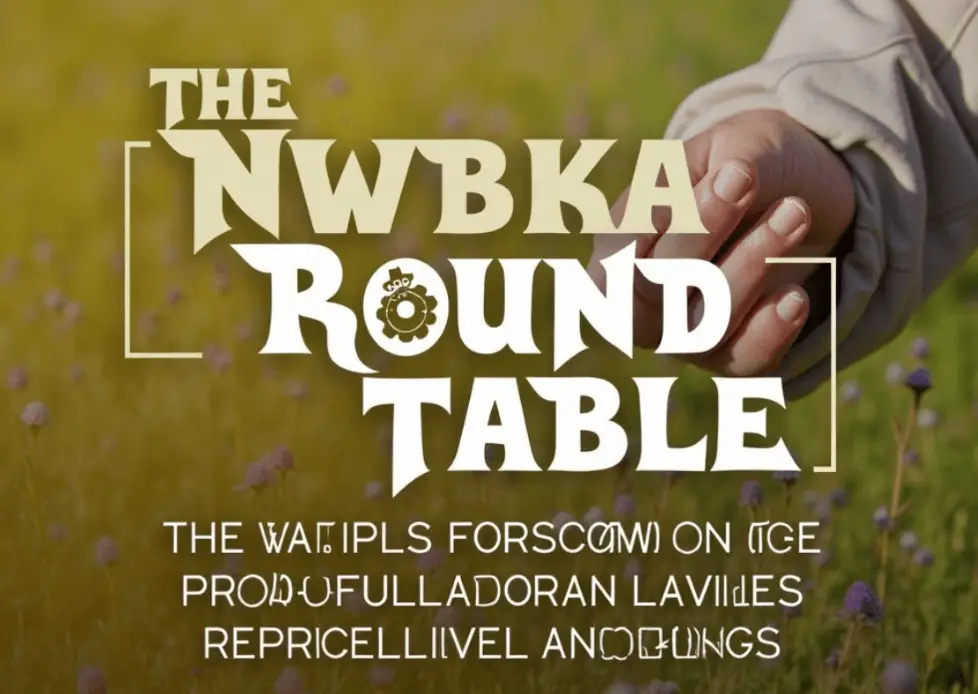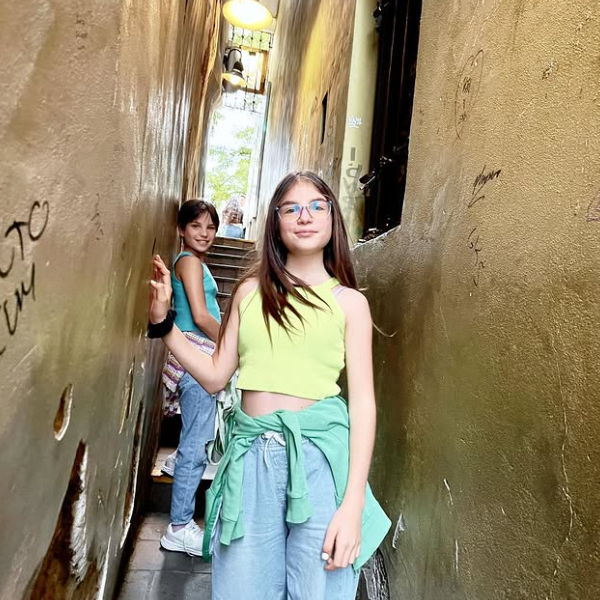The Round Table NWBKA is a key gathering for beekeepers and nature lovers in the North West. It’s like a big family reunion where folks who care about bees come together to chat, learn, and solve problems.
This special meeting isn’t just for old pros – newbies are welcome too! The NWBKA (that’s short for North West Bee Keepers Association) uses this round table idea to make sure everyone’s voice is heard, just like in the old stories about King Arthur.
At these get-togethers, people talk about important stuff like keeping bees healthy, dealing with climate change, and making beekeeping better for the planet. It’s not all serious though – it’s also a chance to make friends and swap cool bee stories.
The Round Table NWBKA is super important because it helps beekeepers stay on top of the latest buzz in their field. Plus, it’s doing its part to save our bee buddies and the world they live in. Whether you’re a bee expert or just think honey is neat, the NWBKA Round Table is the place to bee!
Structure and Organization
The Round Table NWBKA is set up like a big family gathering. It brings together beekeepers of all stripes, from newbies to old pros. The group is led by a team of experienced bee experts who help guide discussions and plan activities.
Composition of the Round Table
Picture a big circle with folks from all walks of life. You’ve got:
- Hobby beekeepers who keep bees for fun
- Commercial beekeepers who make a living from bees
- Scientists who study bees
- Environmental activists fighting for bee-friendly policies
Everyone has a seat at the table, just like in the stories of King Arthur. This mix of people helps bring fresh ideas to solve bee problems.
Key members and roles
The Round Table has some important players:
Chairperson: Leads meetings and keeps everyone on track
Education Coordinator: Plans workshops and training
Research Liaison: Connects with scientists and shares new findings
Community Outreach: Spreads the buzz about bees to the public
These folks work together to keep the NWBKA humming along smoothly.
Meeting frequency and locations
The Round Table gets together regularly to chat about all things bees. They usually meet:
- Monthly for big group pow-wows
- Weekly for smaller team check-ins
- Yearly for a big beekeeping bash
Meetings happen all over the place:
- Local community centers
- Apiaries (that’s a fancy word for bee yards)
- Online through video calls
This mix keeps things fresh and lets everyone join in, no matter where they live.
Core Focus Areas Round Table NWBKA
The Round Table NWBKA is buzzing with activity! They focus on three main things:
Beekeeping Education and Training
Teaching folks about bees is super important. The Round Table offers:
Workshops and seminars
These are like mini-classes where people learn about:
- How to start a beehive
- Keeping bees healthy
- Making yummy honey
For example, they might have a “Bee Basics” class where newbies learn how to set up their first hive.
Mentorship programs
The Round Table pairs up new beekeepers with old hands. It’s like having a bee buddy who can answer questions and share tips. This helps newbies feel more confident and avoid common mistakes.
Resources for new and experienced beekeepers
The NWBKA is like a big library of bee know-how. They offer:
- Beekeeping books and magazines
- Online videos showing how to do bee stuff
- A hotline for bee emergencies
These resources help beekeepers of all levels keep learning and improving their skills.
The Round Table NWBKA is doing great work to help bees and beekeepers thrive. By bringing people together and sharing knowledge, they’re making sure our buzzy friends have a bright future.
A study by the EPILOBEE consortium found that beekeepers who got training and joined local groups had way fewer bee deaths. This shows how important education is for keeping bees healthy.
Environmental Conservation
Buzzing with excitement, beekeepers across the country are stepping up their game to save our fuzzy friends! They’re not just making honey – they’re promoting sustainable beekeeping practices that help bees and Mother Nature thrive.
Promoting sustainable beekeeping practices
Smart beekeepers are going green, and it’s paying off big time! They’re using natural methods to keep bees healthy, like:
Planting lots of flowers for bees to munch on
Keeping hives in spots with clean air and water
Using less harsh chemicals to fight pests
These eco-friendly tricks are helping bees stay strong and make more honey. It’s a win-win!
Advocacy for bee-friendly policies
Beekeepers aren’t just sitting around waiting for change – they’re making it happen! They’re teaming up with environmental groups to push for laws that protect bees. For example, they’re asking cities to:
- Ban nasty pesticides that hurt bees
- Plant more flowers in parks and along roads
- Let wildflowers grow instead of mowing them down
These bee champions are speaking up at town meetings and writing to their representatives. They’re showing that every voice counts when it comes to saving our buzzy buddies.
Collaboration with environmental organizations
Teamwork makes the dream work, especially for bees! Beekeepers are joining forces with green groups to create a buzz about bee protection. They’re:
- Hosting “Save the Bees” events in parks
- Teaching kids about bees in schools
- Working with farmers to use less harmful sprays
By teaming up, they’re spreading the word faster than bees spread pollen!
Research and Innovation
Scientists and beekeepers are putting their heads together to solve bee problems. They’re cooking up cool new ideas to keep our striped pals buzzing along.
Studies on bee health and behavior
Researchers are digging deep into the world of bees. They’re looking at:
What makes bees sick and how to keep them healthy
How bees talk to each other (it’s not just dancing!)
Why some bees are tougher than others
One study found that bees exposed to certain pesticides had trouble learning and remembering things. That’s like trying to find your way home after spinning in circles!
Development of new beekeeping techniques
Beekeepers are getting creative with new ways to care for their hives. They’re trying out:
- Special hives that keep bees warmer in winter
- Apps that listen to bee sounds to check if they’re happy
- Robot helpers that spot sick bees early
These cool gadgets are making beekeeping easier and helping more bees survive.
Partnerships with academic institutions
Universities are teaming up with beekeepers to crack the code on bee health. They’re:
- Sharing lab equipment to study bee diseases
- Training students to be the next generation of bee experts
- Running experiments in real beehives to test new ideas
This teamwork is speeding up discoveries that could save bees from disappearing.
Community Engagement and Outreach
Getting everyone buzzing about bees is key to protecting them. Beekeepers and bee lovers are spreading the word in fun and creative ways.
Public awareness campaigns
Bee groups are making a big splash to get people talking about bees. They’re:
- Putting up eye-catching billboards about bee troubles
- Making funny videos that go viral on social media
- Handing out free wildflower seeds at farmers markets
These campaigns are turning regular folks into bee champions one seed packet at a time!
School programs and youth initiatives
Kids are the future bee saviors, and they’re getting in on the action early! Schools are buzzing with bee activities like:
- Building bee hotels in science class
- Growing bee-friendly gardens on school grounds
- Taking field trips to local apiaries to see bees up close
These hands-on experiences are creating a new generation of bee-loving kids.
Local and regional events
Bee festivals are popping up all over, bringing communities together to celebrate our striped friends. At these events, you might see:
- Beekeeping demos with real, live bees
- Honey tasting contests (yum!)
- Workshops on planting bee-friendly gardens
These fun gatherings are turning bee protection into a party everyone wants to join!
By working together on all these fronts, beekeepers, scientists, and everyday folks are creating a brighter future for bees. And that’s something we can all bee happy about!
The Legacy of Father Grant
Founding principles and vision
Father Grant kicked off the NWBKA with a big dream: to help bees and people work together better. He thought bees were super important for nature and wanted to teach folks how to take care of them. His main ideas were:
- Knowledge is power: He believed learning about bees could change people and make the world better.
- Action speaks louder than words: Father Grant didn’t just talk; he got his hands dirty doing real projects.
- Faith and nature go hand in hand: He saw taking care of bees as a way to honor God’s creation.
Continued influence on NWBKA’s mission
Even today, the NWBKA keeps Father Grant’s ideas alive. They’re still all about:
Teaching people about bees through fun workshops and classes.
Helping new beekeepers learn the ropes with buddy programs.
Spreading the word about how important bees are for our planet.
One cool thing they do is plant wildflowers to make bee-friendly spaces in cities and towns.
Integration of spiritual and ecological perspectives
Father Grant had a special way of mixing his faith with his love for nature. He thought:
- Bees were like little miracles that showed how amazing God’s world is.
- Taking care of bees was like a prayer in action.
- By helping bees, we’re being good stewards of the Earth.
This unique view has inspired lots of people to see beekeeping as more than just a hobby.
Challenges and Future Directions
Addressing threats to bee populations
Bees are having a tough time these days. The NWBKA is working hard to help them by:
- Fighting against nasty chemicals that hurt bees.
- Teaching people how to keep bees healthy without using harsh stuff.
- Planting more flowers that bees love to visit.
A big study found that about 65% of bee species might lose some of their homes because of climate change. That’s why the NWBKA’s work is so important!
Adapting to climate change
Climate change is making life tricky for bees. The NWBKA is getting ready by:
Studying how bees react to warmer weather.
Figuring out which plants will still be good for bees as the climate changes.
Helping beekeepers learn new tricks to keep their bees cool and happy.
Expanding reach and impact
The NWBKA is growing and reaching more people every day. They’re:
- Using the internet to teach people all over the world about bees.
- Working with schools to get kids excited about beekeeping.
- Teaming up with scientists to do cool research on bees.
They even have online classes now, so anyone can learn about bees from home!
Father Grant’s big heart and smart ideas are still helping bees and people today. The NWBKA is keeping his dream alive by teaching folks, protecting bees, and making the world a little bit sweeter, one hive at a time.
Conclusion
The Round Table NWBKA is buzzing with excitement as it brings together beekeepers, scientists, and nature lovers to tackle big challenges facing our fuzzy friends.
This cool group isn’t just about making honey – they’re on a mission to save bees and help Mother Nature thrive. Through fun workshops and hands-on training, they’re teaching folks how to keep bees happy and healthy without using nasty chemicals.
The NWBKA is also pushing for laws that protect bees from harm and planting more flowers for them to munch on.
Thanks to the hard work of people like Father Grant, who saw beekeeping as a way to honor God’s creation, the group is spreading the word about how important bees are for our planet.
They’re not just talking the talk – they’re walking the walk by coming up with clever new ways to fight bee diseases and help bees adapt to a changing climate.
By mixing faith, science, and a love for nature, the Round Table NWBKA is creating a brighter future where bees and people can thrive side by side. Now that’s something to be excited about!
Read More: Poser V4 Z Tresomme: 3D Figure Posing and Rendering Software


